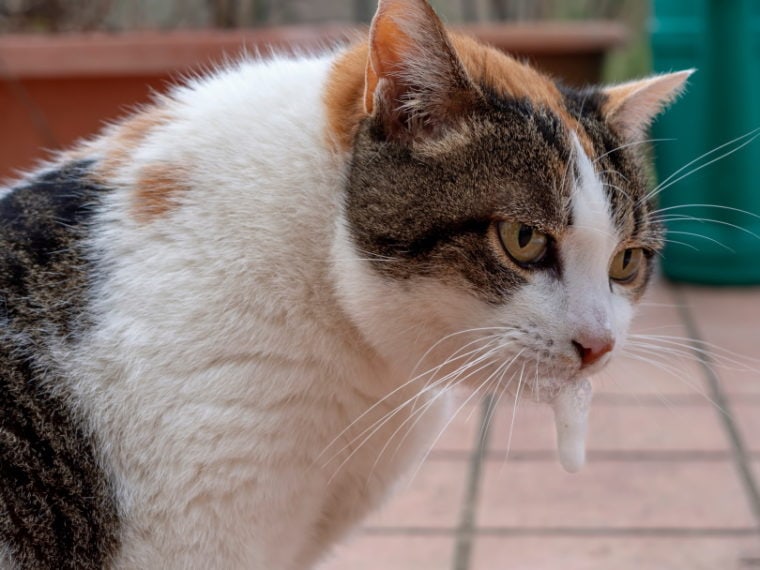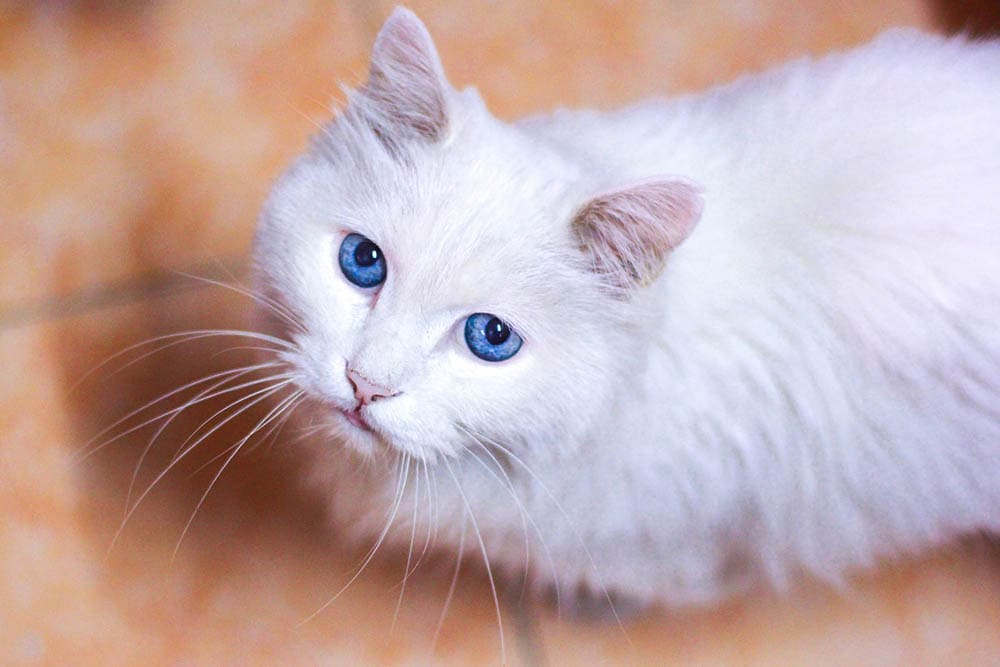
Foaming at the mouth can be a frightening thing to witness in your cat. Naturally, you may be inclined to think of the worst. There are many things that can cause foaming and drooling. While many will warrant a trip to the veterinarian it is best to have some ideas of what to look out for. Our list of 6 possible causes of cats foaming at the mouth will enlighten you.
The 6 Reasons Why Your Cat Is Foaming at the Mouth
1. Nausea
In animals, nausea often presents as drooling or mouth foaming. Even humans tend to have excess saliva when they’re feeling nauseous or about to vomit. This usually goes along with a low appetite and fatigue.
Nausea can be caused by many things, ranging from a simple travel sickness to illnesses like gastritis or kidney disease. A one off vomit is usually not a cause for concern, but if frequent or combined with other signs of illness it’s best to have your cat evaluated by a vet.
2. Emotional Distress
Cats can be highly susceptible to emotional distress like anxiety. They may feel separation anxiety when they’re separated from you, stress because of other cats or pets in the house, stress from moving, and more.
If in an extremely stressed or anxious state, along with foaming at the mouth, your cat may show stress by pacing, excessively grooming, trembling, and hyper-vigilance. Relieving the anxiety—and the foaming symptom—depends on determining the underlying cause and removing it. You may need to enlist the help of a registered behaviorist and veterinarian to help with symptoms this severe.

3. Dental Problems
Dental problems can cause pain and discomfort, sometimes that can lead to your cat drooling or foaming at the mouth a bit. Gingivitis, periodontitis, a tooth abscess, or an injury to the mouth or jaw can all cause foaming or excessive drooling.
Other symptoms depend on the exact nature of the dental problem. Pain and bad breath often occur with a tooth abscess or dental disease, while a more extensive mouth injury may have a lot of pain and a misshapen jaw. Whatever the cause, schedule an evaluation from your vet.
4. Poison
Though unpleasant to think about, poisoning or toxicity can cause foaming at the mouth. If you suspect this is the case, seek immediate veterinary care. Aside from foaming at the mouth, different substances can cause different toxicity symptoms.
Several substances are toxic to cats, including some flea medications, garden plants, food, household cleaning products, or small animals like frogs and insects. If possible, identify what the toxic substance was to help your vet provide prompt treatment.

5. Seizure
Usually, seizures are obvious. Your cat may violently tremble and shake, lose consciousness, and foam at the mouth. If you’re not around and you see the after effects, like drooling or foaming, or your cat is prone to seizures, this could be the cause.
Seizures are dramatic, but there are several medications that can be used to treat seizure disorders and reduce their severity and frequency. Regardless, you still need to schedule an appointment with your vet for an evaluation.
6. Rabies
While foaming at the mouth may conjure thoughts of rabies to mind this largely depends on where you live. Take advice from your local veterinarian if you have any concerns about rabies. If your cat is vaccinated, rabies is less likely to be the cause.
If your cat has missed vaccines and tangled with wildlife, it’s best to err on the side of caution. Contact your veterinarian straight away for advice and keep yourself safe from the potentially infected animal.

Frequently Asked Questions
Why Does My Cat Foam at the Mouth After Getting Medication?
If medications are bitter or foul-tasting, your cat may foam at the mouth in response to the taste. It could also occur if it’s struggling to swallow the pill or liquid. If this is the case it will usually occur immediately after the medication is given and should settle down fairly quickly. Offering water or a favorite food can help them get rid of the taste.
What’s the Difference Between Drooling and Foaming?
They may seem synonymous, but drooling and foaming are two different things. Foaming is the result of panting and drooling at the same time, which causes the saliva to bubble and look like suds. Drooling is purely an excess of saliva coming out of the mouth.
Is Occasional Foaming a Problem?
If foaming or drooling is caused by something innocuous, such as bitter medication, it’s not a cause for alarm. Foaming that may be connected to a dental problem, possible toxicity, seizures, or other health problems, and frequent, excessive foaming should be addressed quickly.
Conclusion
Foaming and drooling in cats could be caused by many different things, only some of which are serious. If you’re concerned about your cat foaming at the mouth, schedule an appointment with your vet.
See Also:
- Cat Drooling All of a Sudden? 6 Possible Reasons Why
- Why Do Cats Drool When You Pet Them? 5 Reasons Explained
Featured Image Credit: Sarah2, Shutterstock








